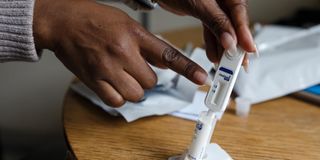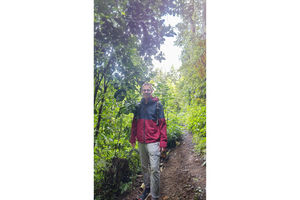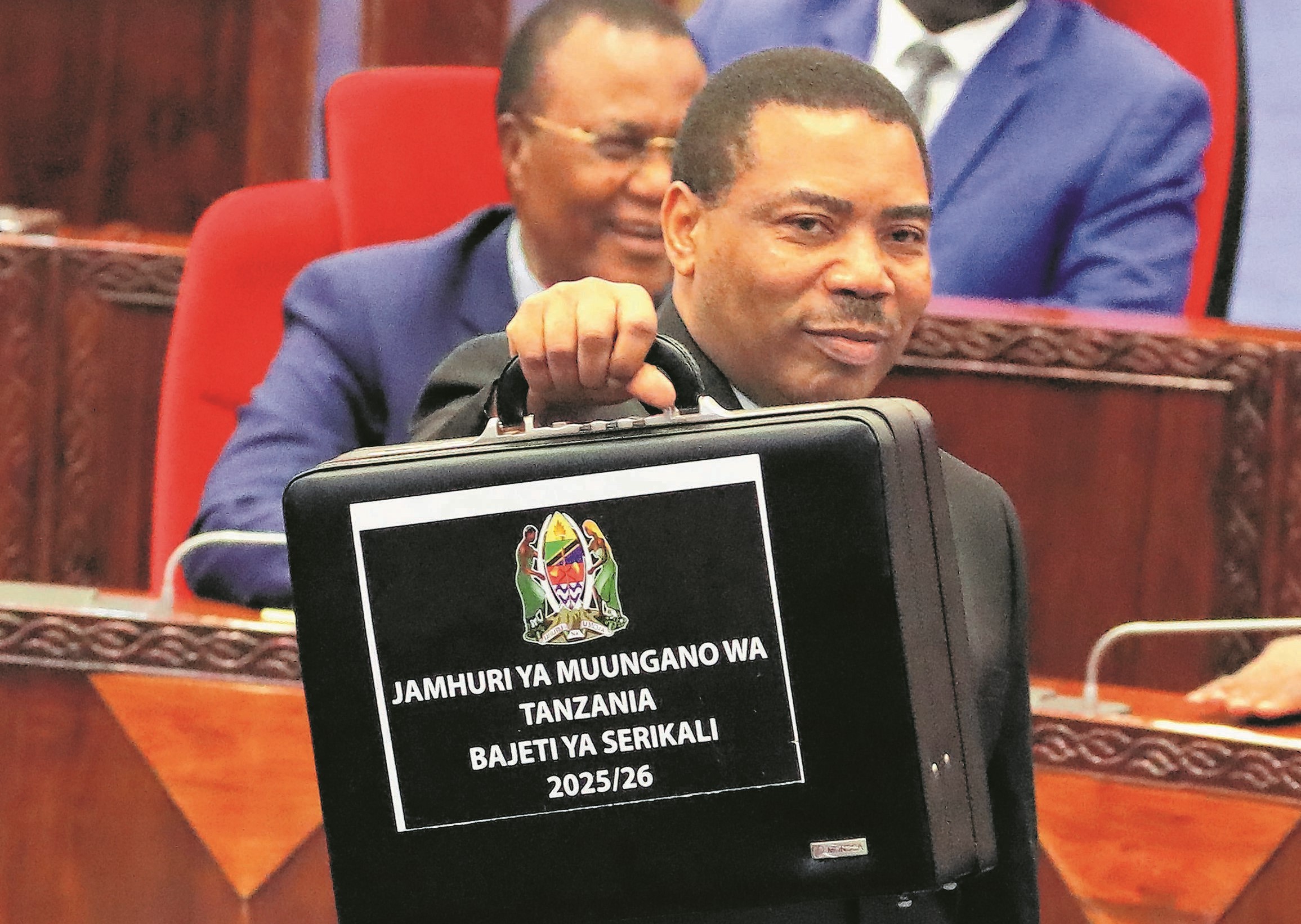HIV self-testing: What you need to know

While HIV self-testing offers convenience and privacy, it should not replace comprehensive testing and consultation with healthcare professionals. PHOTOI COURTESY
What you need to know:
- While HIV self-testing offers convenience and privacy, it should not replace comprehensive testing and consultation with healthcare professionals.
In recent years, a trend has emerged among young people regarding HIV self-testing.
The practice involves individuals taking control of their health by conducting HIV tests in the comfort and privacy of their homes.
While this trend has gained momentum due to factors like ease of accessibility and confidentiality, there are essential considerations to address, according to experts.
A survey done by this reporter shows that self-testing equipment, such as OraQuick, is available in pharmacies in Dar es Salaam, with prices ranging from Sh2000 to Sh6000.
Aisha Salum, a 31-year-old pharmacist at Sinza, notes that a significant number of customers purchasing these testing kits are aged 19 to 35, with the majority being young women.
Aisha suggests that many of these young individuals engage in unprotected sexual encounters, often with multiple partners, leading to concerns about their HIV status.
“I think it is because most of them are single and have sexual relationships with different people. Many have unprotected sex and self-test to be sure they have not been infected. The decision to test follows the fact that many have one-night stands with people they have never met before,” she notes.
Aisha emphasises the importance of safe sex practices, advising the youth to prioritise their health by making responsible choices.
“Everyone should always remember to practise safe sex. They should always make the right decisions. Engaging in unprotected sex with someone whose HIV status you are unsure about is putting your life at risk. Young people should know they have their whole lives ahead of them, which they should protect at all costs,” she advises.
Justin Jackson, a 23-year-old resident of Sinza, shares his experience of engaging in unprotected sex with a stranger he met at a nightclub.
Afterward, he became worried about the possibility of HIV infection.
He decided to take an HIV self-test using an OraQuick kit, which provided him with peace of mind when the results showed he was not infected.
However, his story serves as a cautionary tale about the risks associated with casual, unprotected encounters.
“We drank for three hours that night and later went to a hotel where we spent the night. I didn’t even ask her name because I was sure that was going to be the first and last time we would be meeting. I just asked her for sex and we did not use protection,” he says.
One of his friends told him the following day that the girl he had spent the night with was a prostitute.
“He asked me if I had used a condom and advised me to take an HIV test when I told him I hadn’t. I got so worried and regretted ever meeting that girl. How could I have done that with someone I barely knew?”
Justin could not sleep for two days. “I was aware that HIV self-testing was possible so I decided to go to the pharmacy to get the test kit,” he says.
He bought OraQuick and tested himself at home. He was relieved when the test showed he was HIV-negative. “I never considered going to the hospital for another test,” he says.
What Justin wasn’t aware of was the fact that you cannot tell whether you have been infected or not immediately after HIV exposure.
According to experts, it takes 10 to 90 days for tests to detect HIV after exposure. While some tests take 18 to 90 days, some take 18 to 45 days, and some take 10 to 33 days after exposure.
This is a very important fact to consider when you get a negative result, rather than throwing caution out the window.
Habiba Hamisi, a 29-year-old young mother from Tabata, narrates a similar experience where she engaged in unprotected sex with a partner who later cut off contact.
Fearing potential HIV exposure, she decided to self-test using an OraQuick kit. Initially, the kit indicated she was HIV positive, causing significant distress.
However, she later discovered that the self-testing equipment can be affected by environmental factors and sought confirmation from a hospital, where she tested negative.
Elizabeth Goodluck, a 26-year-old resident of Manzese, shares her motivation for opting for HIV self-testing.
She had a history of unprotected sex with multiple partners and felt uncomfortable visiting a hospital for testing.
The self-testing kit provided her with the privacy she desired, and the results showed she was not infected.
Despite her newfound confidence, she chose to continue practising safe sex.
“I had never used protection my whole life, and after testing negative, I decided to use a condom from there on. I have since never tested again. Since the negative results made me feel confident and comfortable, I don’t think I will ever go back to my bad ways because I just can’t risk my peace of mind anymore,” she says.
Kelvin Kisoma, the Tanzania Commission for AIDS (TACAIDS) Training Coordinator, explains that OraQuick tests are available at health centres and are distributed through the country's medicine depots, such as the Medical Stores Department (MSD).
These tests are free and coordinated by the Ministry of Health and the President’s Office, Regional Administration and Local Government.
Kisoma emphasises that while self-testing is a valuable initial step, it is not sufficient to confirm one's HIV status.
The results should be shared with a health professional, and further tests like SD Bioline and Uni-Gold may be necessary to validate the results.
“It is okay to test yourself for HIV by using available self-test kits, but it is not enough to prove that you’re HIV positive or negative. Only a professional can prove that to you,” he says.
The expert says among the problems with self-testing is that apart from the fact that the tests alone are not enough to guarantee one’s status, one may not receive a positive result well, which could lead to a negative reaction.
This can be avoided if a professional is involved because they know how best to deliver such results without causing any problems.
Dr Mwinyikondo Amir, assistant director of health services at the Ministry of Health, emphasises the importance of adhering to Ministry of Health instructions when conducting HIV testing.
He also underscores that selling self-testing equipment is illegal and punishable by law.
He encourages young people to prioritise their health and take measures to prevent HIV transmission, such as using condoms and practising abstinence, especially for those not in committed relationships.
While HIV self-testing offers convenience and privacy, it should not replace comprehensive testing and consultation with healthcare professionals. Responsible sexual behaviour, protection, and adherence to health guidelines remain vital in the fight against HIV/AIDS.





